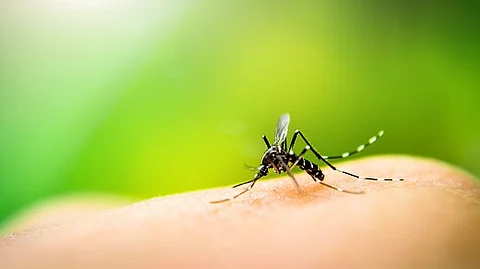The Baum laboratory along with colleagues at Imperial College London, UK, previously identified a new class of potent antimalarial compounds, belonging to a family of sulphonamides. These compounds kill the parasite only when it is in a specific sexual phase of its life cycle, rapidly stopping it from being able to infect a mosquito and, therefore, preventing any subsequent human infection. In their new Disease Models & Mechanisms article, Baum and colleagues explored exactly how these compounds work, which is an essential step before the compounds can be developed for testing in patients. The lead author of the work, Dr Sabrina Yahiya, commented that “targeting parasite transmission from human to mosquito and back again is pivotal if we hope to reach the goal of worldwide malaria elimination. If you only treat one symptomatic patient, you address their symptoms but neglect the issue of malaria spread. By limiting transmission, however, you can radically curtail the spread of malaria across a population”.


